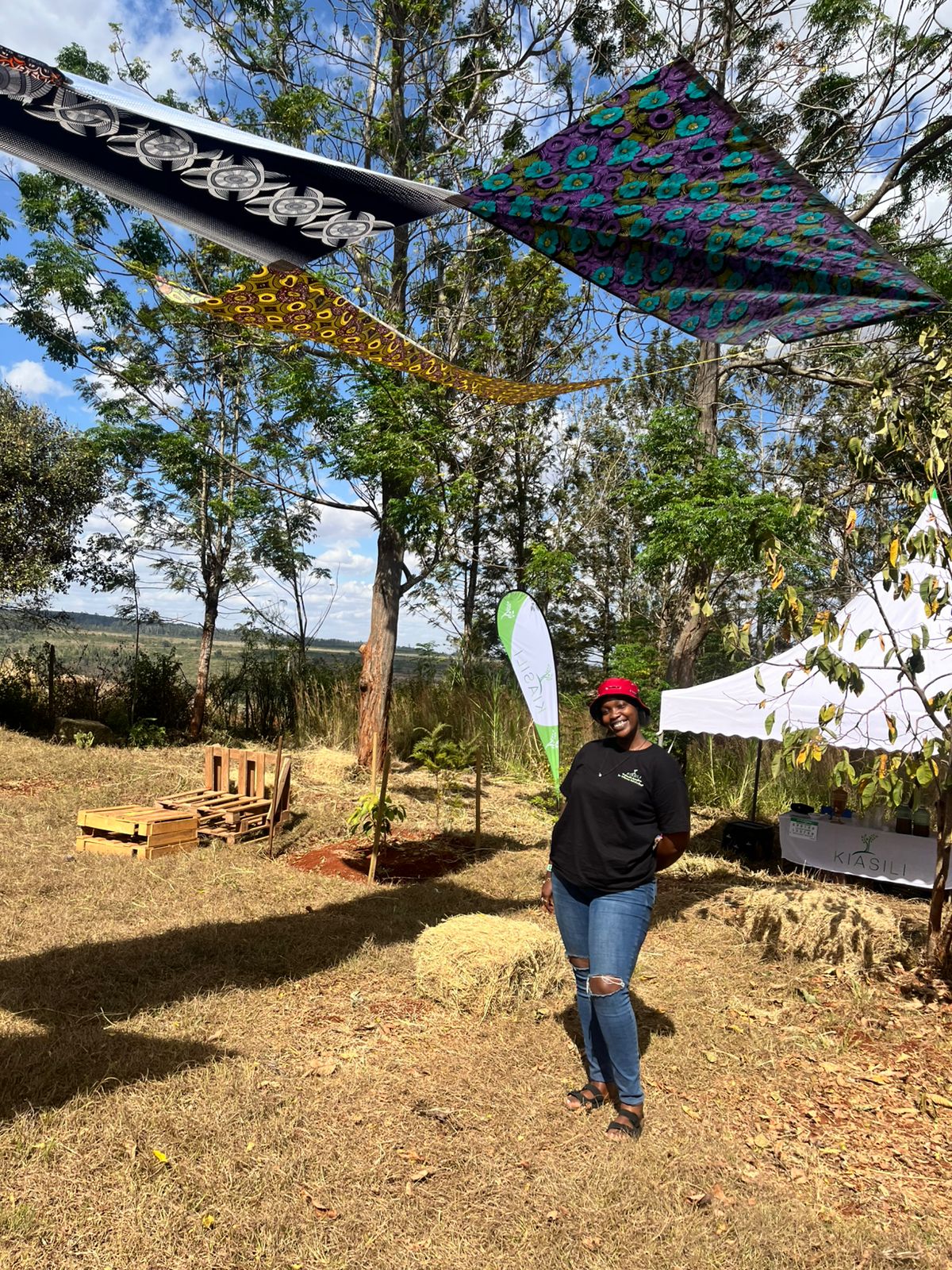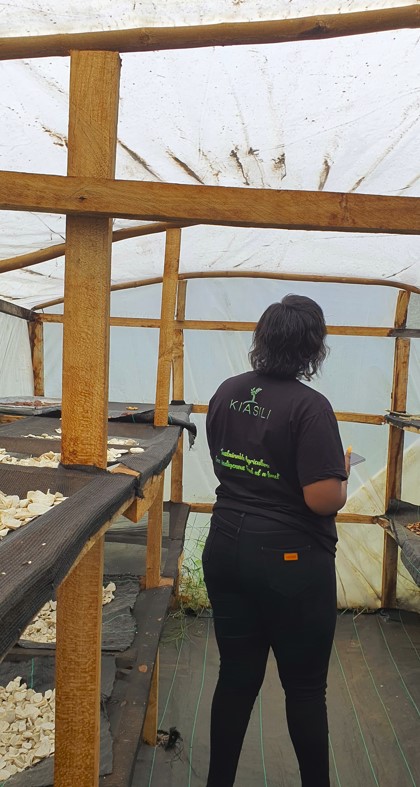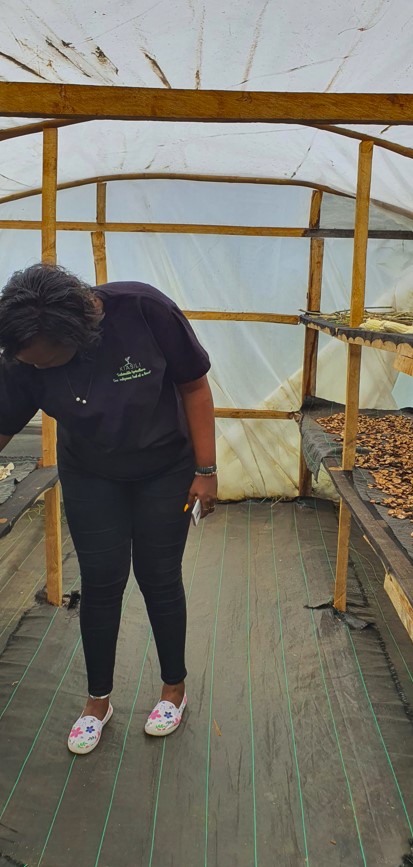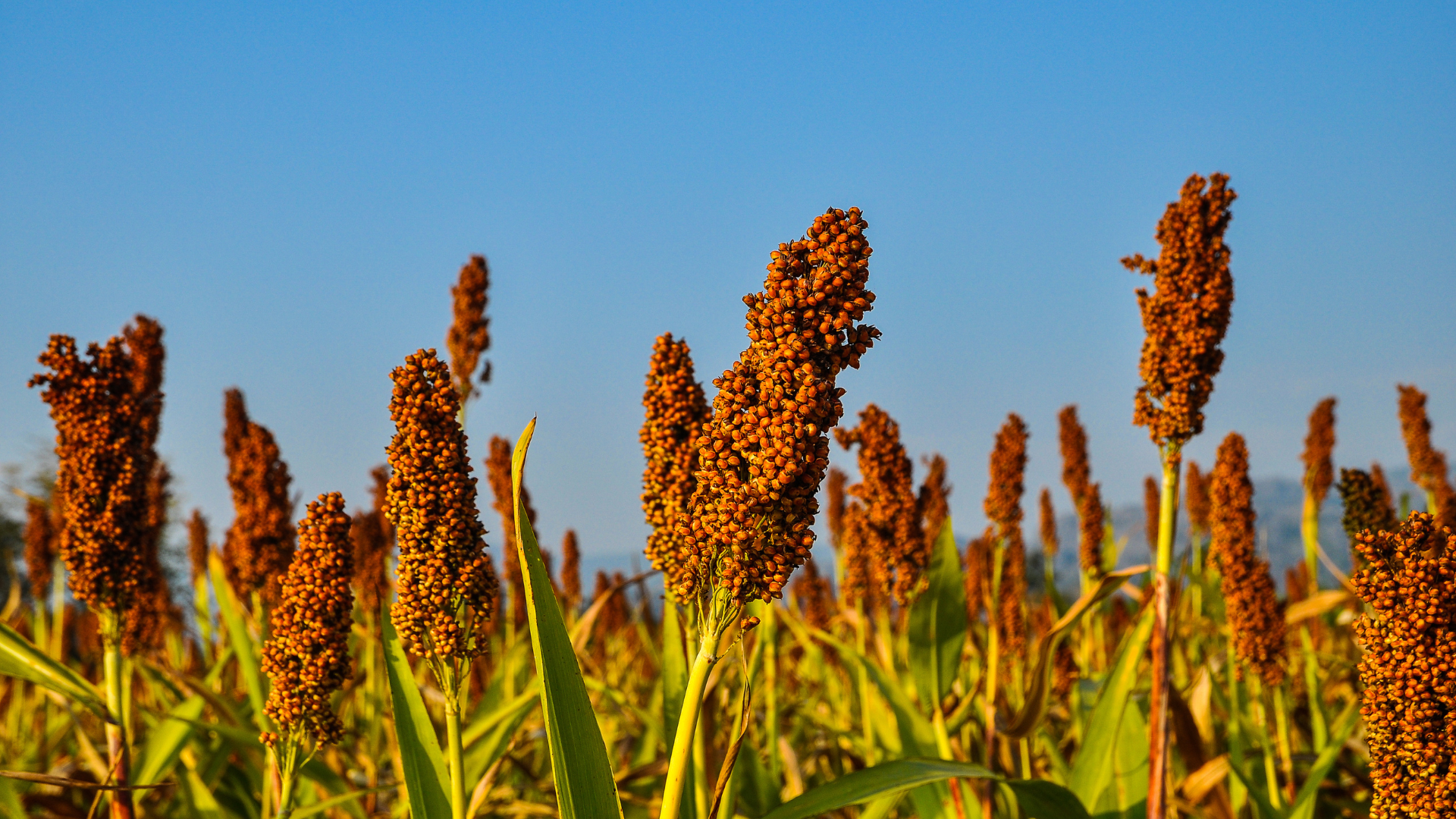How a Woman-Led Social Enterprise is Transforming Indigenous and Traditional Food Systems in Kenya - An Interview with Kiasili Farm
AgEnRes spoke with Fiona
Njeri Macharia, co-founder and Social Impact, Purpose, and Sustainability Manager at Kiasili Farm, to learn how the initiative is empowering smallholder farmers,
elevating Indigenous and Traditional Food Crops (ITFCs), and tackling food waste through technology and sustainable
practices.
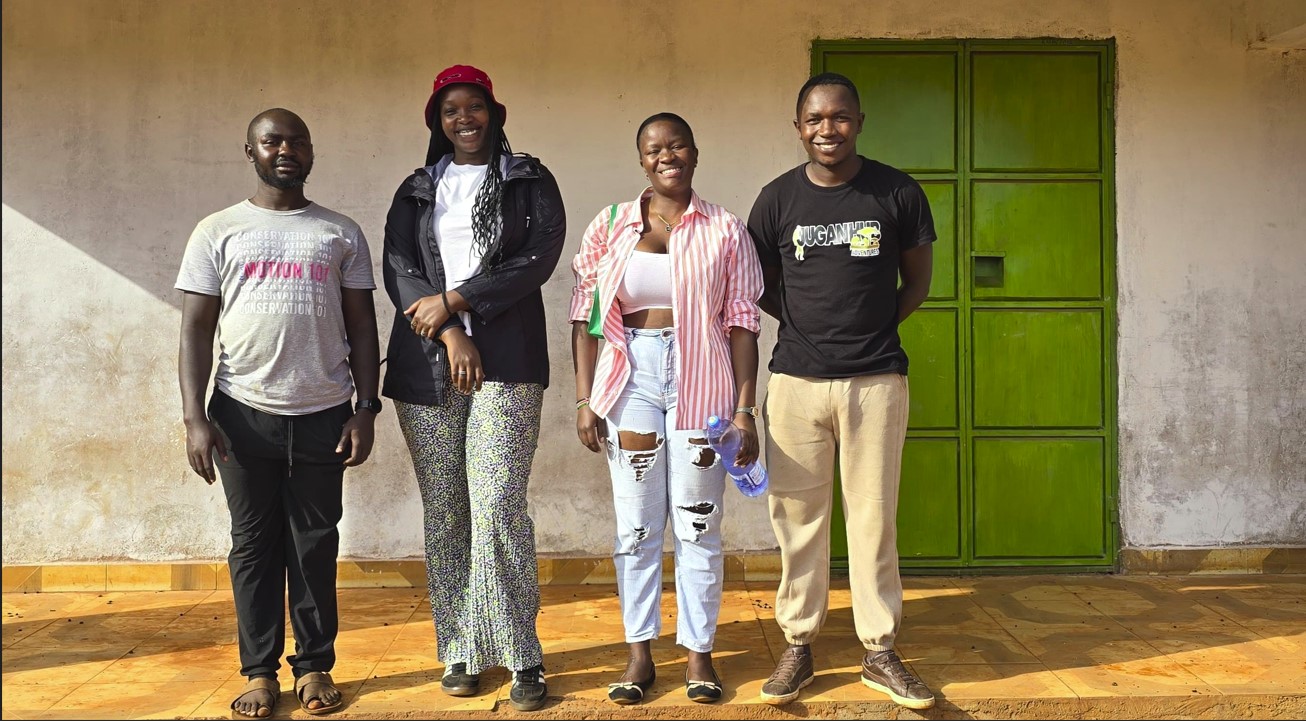
Getting to Know Kiasili Farm
1. Could you briefly
introduce yourself and explain what Kiasili Farm is?
My name is Fiona Njeri Macharia, and I am the co-founder and Social Impact, Purpose, and Sustainability Manager at
Kiasili Farm. Kiasili Farm is a woman-led social enterprise dedicated to promoting Indigenous and Traditional Food Crops
(ITFCs), empowering smallholder farmers, and tackling food waste through sustainable agricultural practices. Our work
focuses on improving food security, enhancing farmer livelihoods, and fostering resilience within Kenyan communities by
leveraging technology and climate-smart farming methods.
2. What challenges
in Kenya’s agricultural sector motivated you to create a digital marketplace for ITFCs?
Kenya's agricultural sector faces several challenges, including the underutilization of ITFCs, limited market access for
smallholder farmers, and post-harvest losses. These crops, despite their high nutritional value and climate resilience,
are often overlooked in favor of commercial staples. Farmers struggle with low demand, inadequate value chains, and a
lack of digital tools to connect with consumers. By creating a digital marketplace, Kiasili Farm addresses these gaps by
linking farmers directly to buyers, boosting the visibility of ITFCs, and providing a reliable income stream for
marginalized farmers.
3. Kiasili Farm
focuses on sustainability, social impact, and community resilience. Why are these values so central to your
work?
Sustainability, social impact, and community resilience are the pillars of Kiasili Farm because they directly contribute
to long-term food security and economic empowerment. We recognize that sustainable agriculture is not just about
increasing yields but also about regenerating ecosystems, reducing food waste, and creating inclusive opportunities for
women, youth, and farmers with disabilities. By embedding these values into our work, we ensure that our interventions
create lasting change, enabling communities to thrive despite climate and economic challenges.
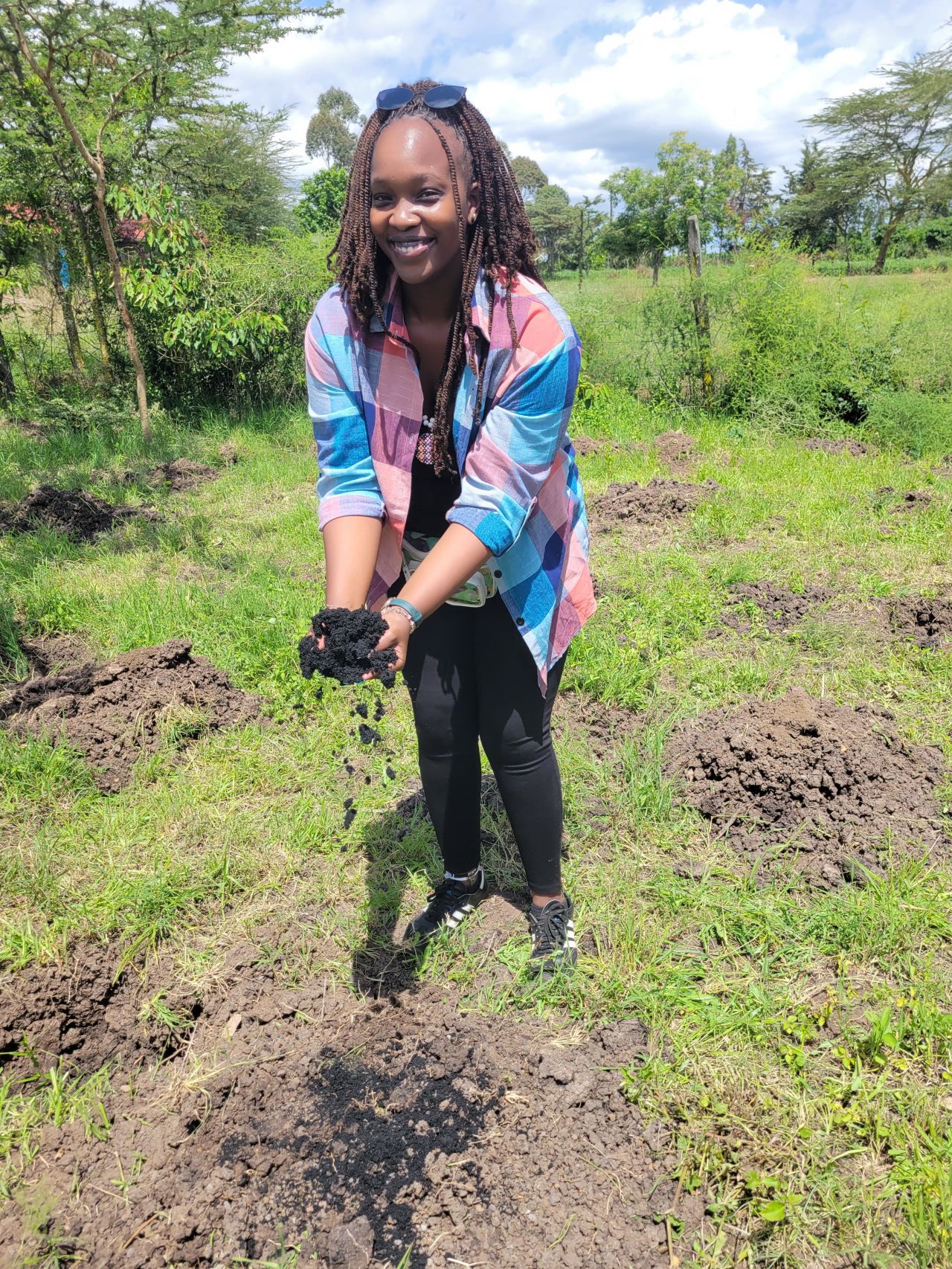
Fiona Macharia, co-founder and Social Impact, Purpose, and Sustainability Manager at Kiasili Farm
The Impact of Kiasili Farm
4. How does Kiasili
empower women-led households and youth in agrifood systems? Can you share a success story?
Kiasili Farm empowers women-led households and youth by providing them with access to markets, training on sustainable
farming techniques, and financial support. One of our success stories is Grace, a 28-year-old farmer in Kiambu County
who struggled to sell her vegetables before transitioning to Indigenous food crops. As part of the Kiasili Family, Grace
gained direct access to consumers, increased her income by 40% due to better returns from Indigenous foods, and now
mentors other young women in her community. Her story reflects the transformative power of economic inclusion in
agriculture.
5. What role does
technology (IoT, big data, blockchain) play in your marketplace, and how has it improved farmers'
livelihoods?
Technology is at the core of Kiasili Farm’s operations. We integrate data-driven insights to forecast demand, reduce
post-harvest losses, and ensure fair pricing. Blockchain enhances transparency in transactions, allowing farmers to
receive fair compensation. IoT-powered soil monitoring tools help optimize cultivation practices, leading to better
yields. These technological solutions have empowered farmers with knowledge and market intelligence, improving their
productivity and economic stability. We also incorporate innovative AI solutions tailored to promote inclusion, such as
our Kiasili Farm chatbot designed especially for farmers living with disabilities.
6. Your initiative
also tackles food waste. Can you tell us more about how your organic manure program works?
Our food waste recycling program converts organic waste into nutrient-rich manure through composting and bio-digestion.
We collect food scraps from local markets and farms, process them into organic fertilizers, and distribute them to
farmers at affordable rates. This initiative not only minimizes waste but also improves soil health, reducing dependence
on synthetic fertilizers and promoting regenerative agriculture.
Kiasili Farm Fieldwork
Indigenous & Traditional Food Crops
7. What are some
examples of ITFCs that Kiasili promotes, and what makes them so important for food security and nutrition?
We promote crops such as amaranth, millet, sorghum, African nightshade, and cowpeas. These crops are nutrient-dense,
drought-resistant, and culturally significant. They provide essential micronutrients and offer an alternative to
monoculture farming, enhancing biodiversity and strengthening food systems against climate change.
8. Have you noticed
a shift in consumer attitudes toward these crops? What challenges remain in making them more mainstream?
Yes, there is growing interest in ITFCs due to increasing awareness of their health and environmental benefits. However,
challenges persist, including limited availability in mainstream markets, lack of consumer education, and policy
barriers that favor commercial crops. Scaling up awareness campaigns and integrating ITFCs into public food programs can
accelerate their adoption. Kiasili Farm is also exploring how strategic partnerships can extend this reach further into
2025.
9. How do you work
with farmers to promote sustainable cultivation of these crops?
We provide farmers with training on organic farming, regenerative practices, and soil health management. We also
facilitate access to high-quality seeds and connect them to markets through our digital platform, ensuring they receive
fair prices and incentives to continue growing ITFCs sustainably.
Sorghum (indigenous cereal crop)
Future Vision & Collaboration
10. What are Kiasili
Farm’s long-term goals? Where do you see the initiative in five years?
Our long-term vision is to scale our digital marketplace across Kenya and expand into other Eastern African countries
such as Rwanda and Tanzania. In five years, we aim to onboard 10,700 farmers, reduce post-harvest losses by 50%, and
increase ITFC consumption nationwide. We also plan to launch a microfinance arm to provide smallholder farmers with
accessible funding.
11. If you could
share one key lesson with farmers or agribusiness entrepreneurs looking to drive change in their communities, what would
it be?
Innovation and collaboration are key to driving change in agriculture. By embracing technology, sustainable practices,
and partnerships, farmers and agripreneurs can unlock new opportunities, improve resilience, and create lasting impact
in their communities.
12. What kind of
synergies can be established between global stakeholders—projects like AgEnRes, policymakers, and consumers—and
initiatives like Kiasili Farm?
Global stakeholders play a crucial role in scaling sustainable agricultural solutions. Partnerships with initiatives
like AgEnRes can drive research and development, policymakers can create supportive regulations for ITFCs, and consumers
can drive demand by making conscious food choices. Cross-sector collaboration ensures a holistic approach to food
security, sustainability, and climate resilience.
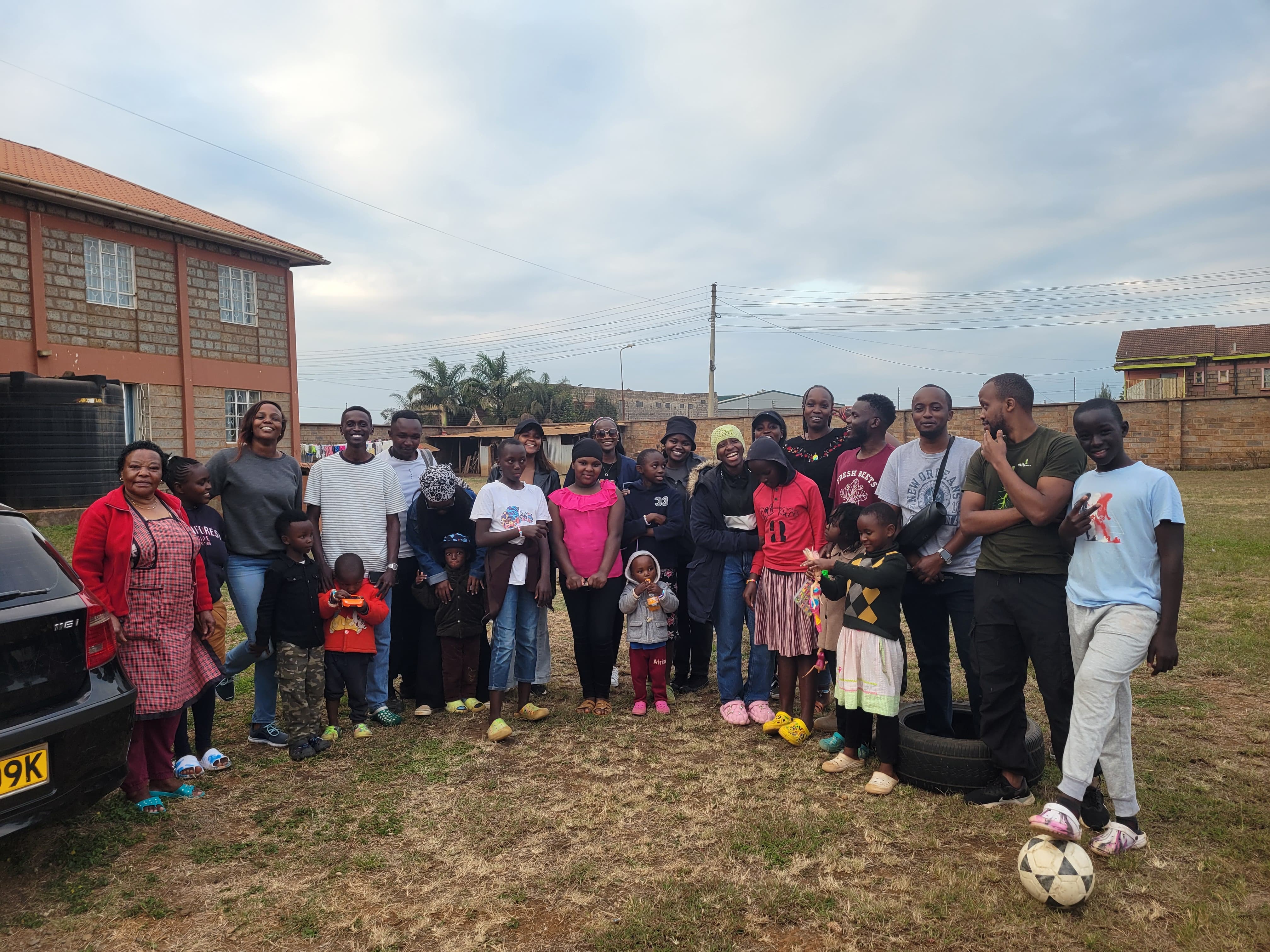
Learn More About Kiasili Farm
Kiasili Farm is proving that innovation, inclusion, and Indigenous crops can transform Kenya’s agrifood systems. To learn more about their work, visit Kiasili Farm’s website and follow them on Instagram / LinkedIn to stay updated on their latest initiatives.

